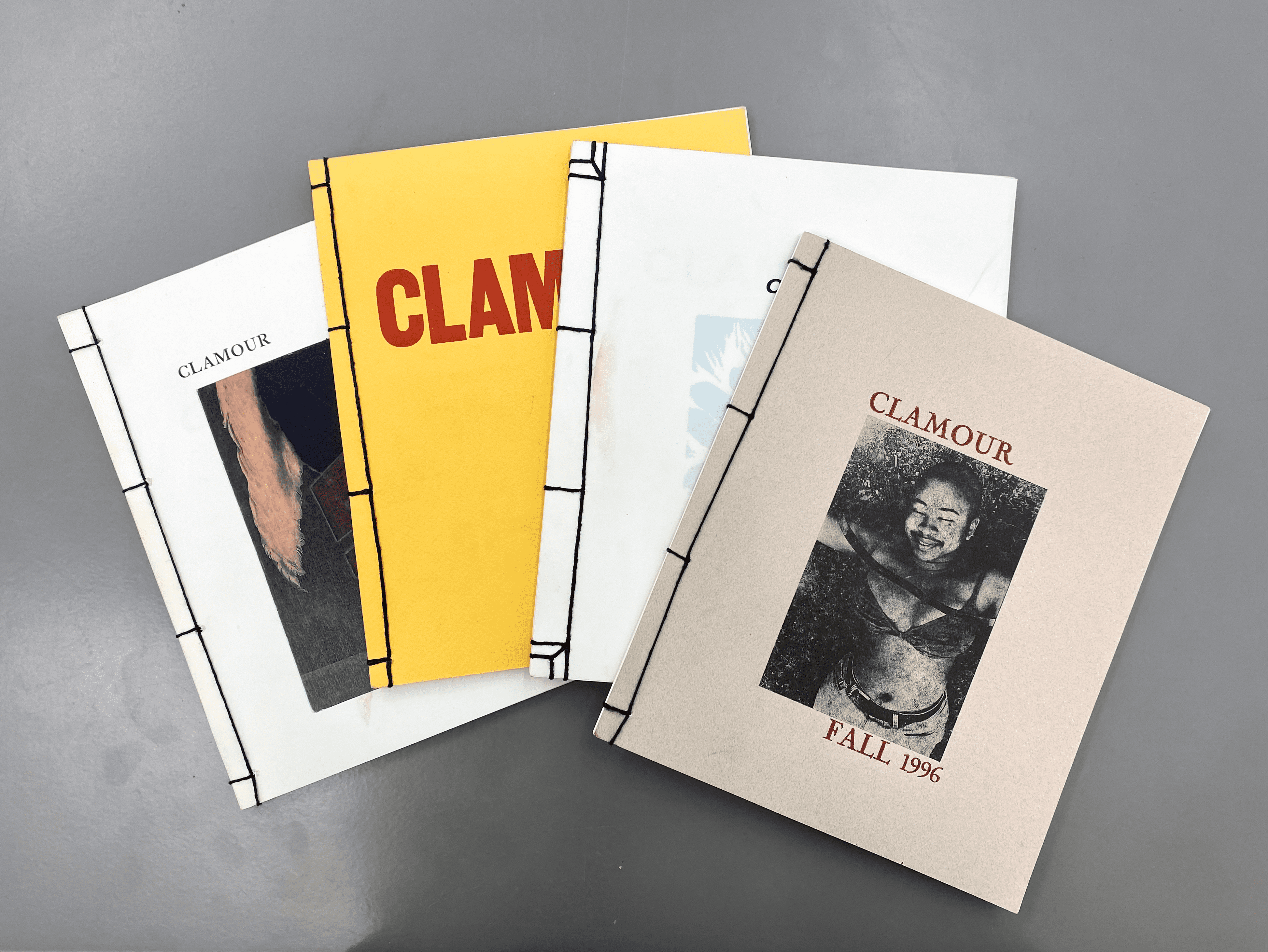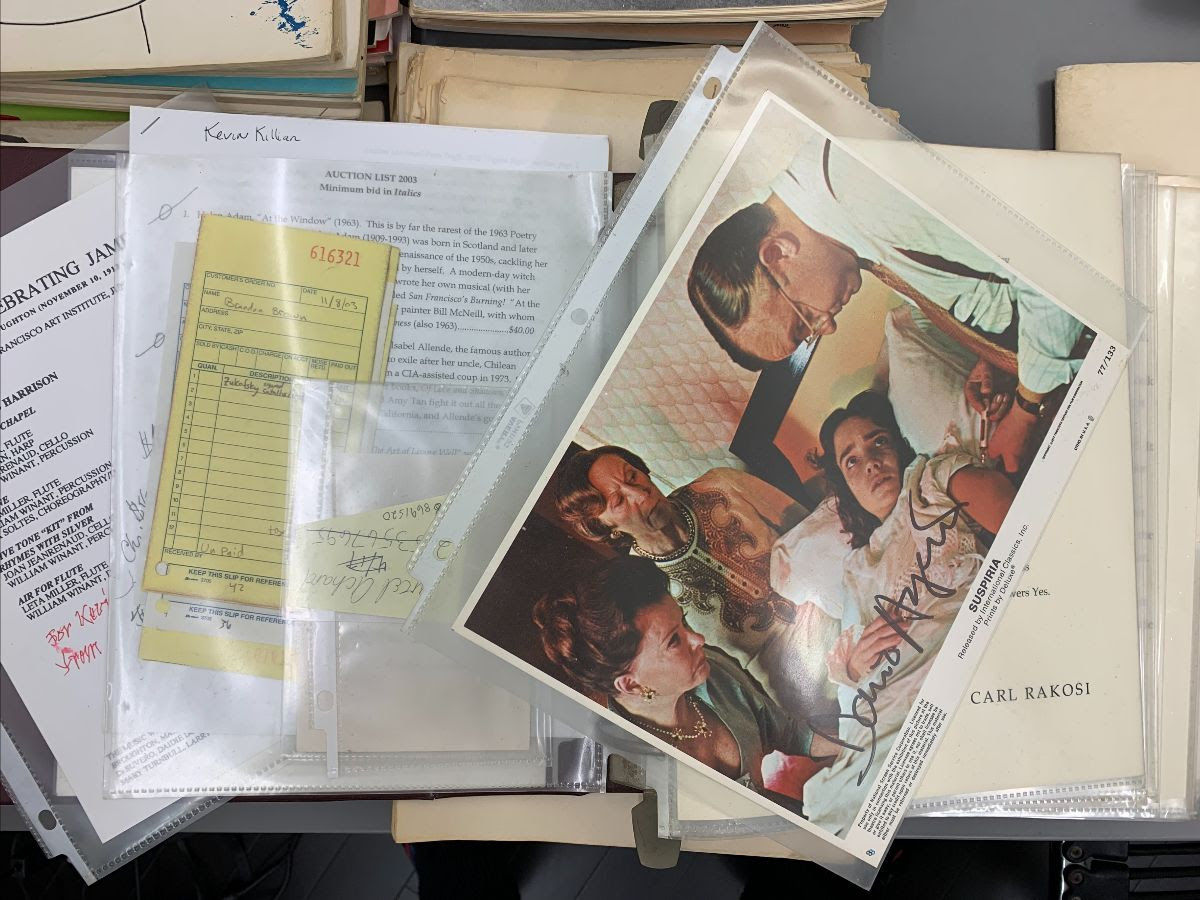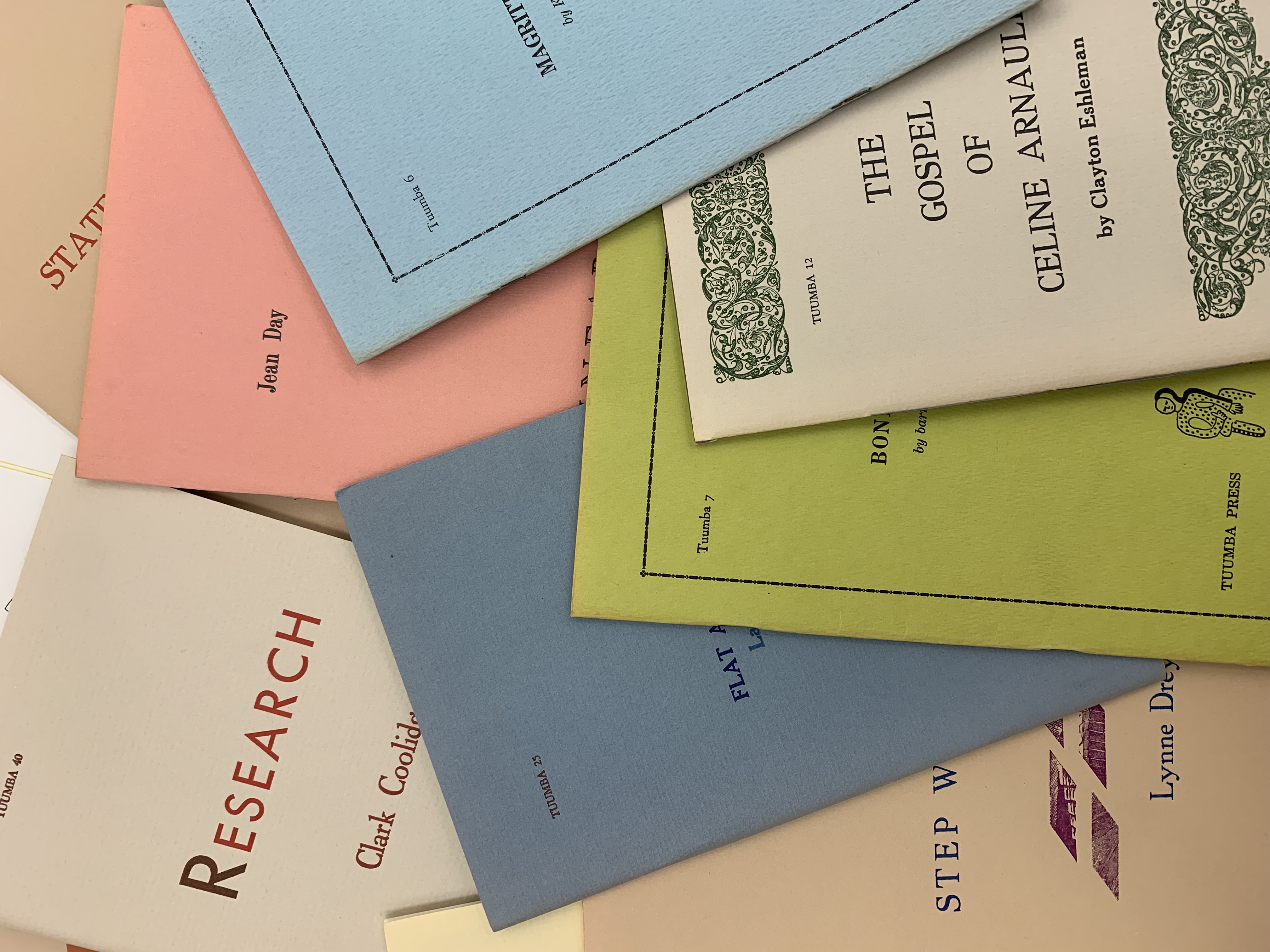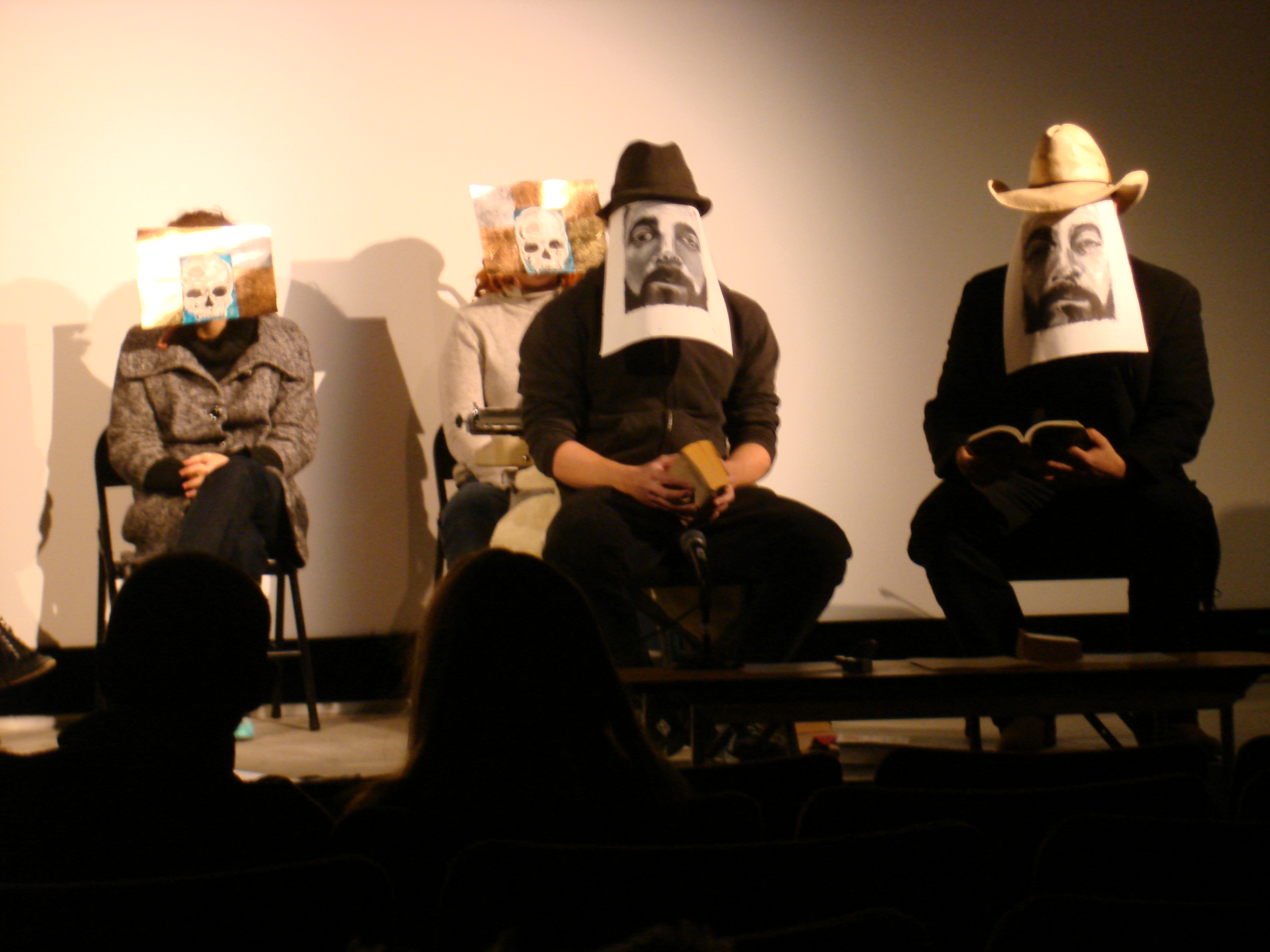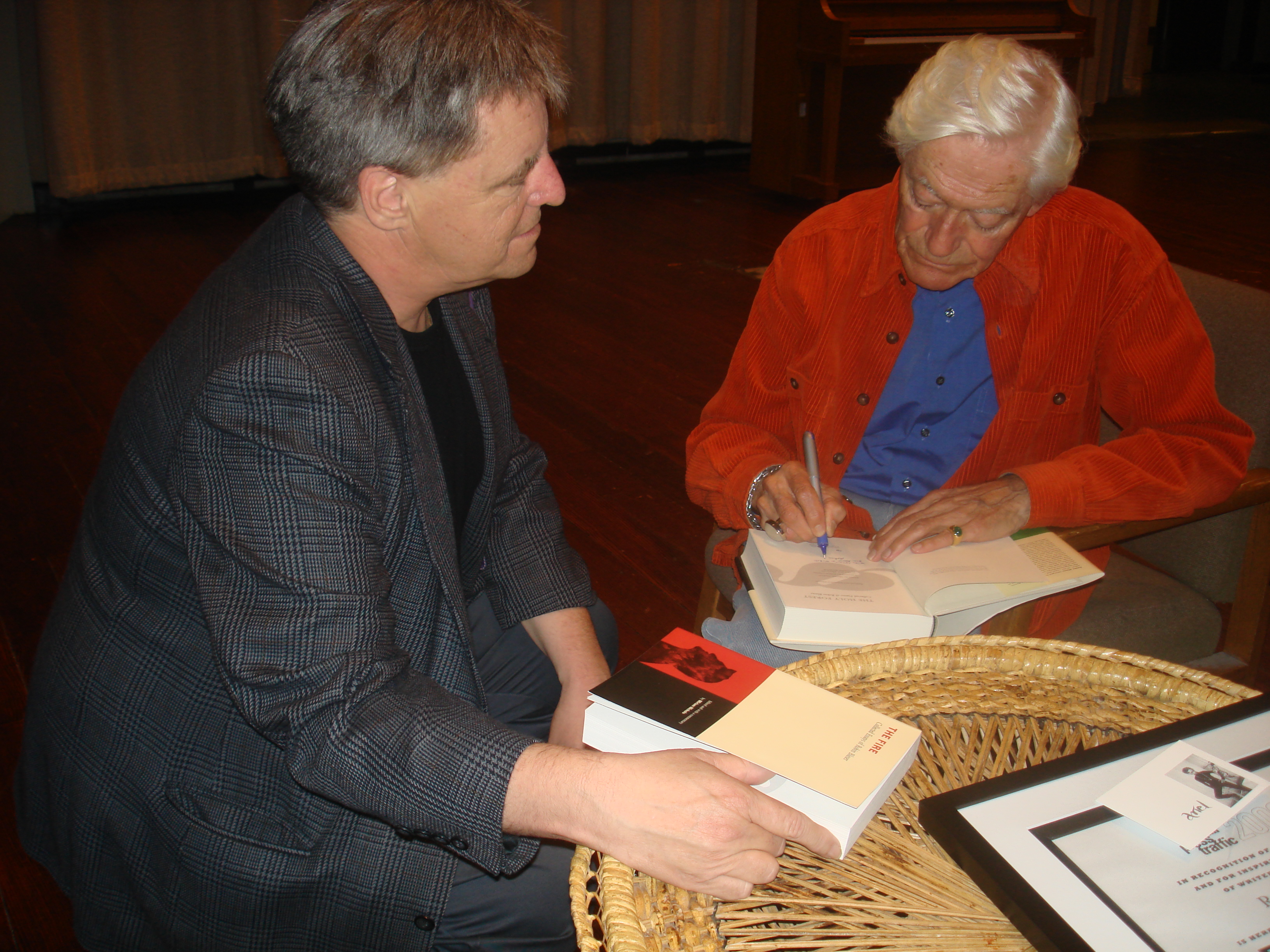Our Print Collection includes books, chapbooks, journals, literary magazines, anthologies, zines, and ephemera that collectively document small press culture; though our emphasis is on Bay Area production, lineages, and movements, these holdings reflect the ways in which artistic communities and lineages transcend strict geographic boundaries. This collection is a representation of the hand-produced, independent, and small press publications that are self-supported in collaboration and community, printed in limited quantities, and often distributed person-to-person at public events and gatherings. The majority of our materials cannot be found in bookstores and libraries, as our idiosyncratic collection is composed of books that SPT has inherited from its past, reacquired, or received as donations. Intentional work on the print collection began in 2022. We gratefully accept donations, which will allow the collection to evolve over time. Our archives are not intended to be a static snapshot of the past, but rather a living, changing collection. We are committed to filling in gaps, particularly with representations of literary activity from cultural groups that have been historically marginalized from our organization and others.
